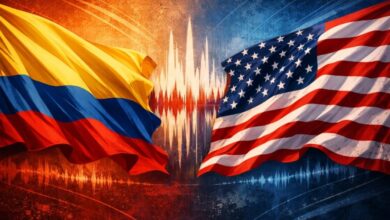20 Years Since 9/11: ¿How The World Has Changed?
On September 11, 2001, Al Qaeda Hijacked Four American Planes And Carried Out the Deadliest Terrorist Attack In History.

20 years later, the effects of this attack on the approach to security, surveillance and the fight against terrorism are still latent. Photo: Pexels
LatinAmerican Post | María Fernanda Ramirez Ramos
Listen to this article
Leer en español: 20 años del 9/11: ¿Cómo ha cambiado el mundo después del atentado?
The images of the destruction of the twin towers of the World Trade Center, which each year run through the pages of the world press, recall one of the most painful and chaotic episodes in the entire history of the United States. An attack in which 2,977 people died and the vulnerability of a world power became evident.
20 years later, the effects that this attack left on security policies, surveillance, and the fight against terrorism are still latent. However, the changes have also permeated other areas such as foreign policy; the restructuring of institutions and legal systems; education; the perception and discrimination towards the countries of the Middle East; political campaigns; the speeches of the mass media; and air travel, not only in the United States, but in many countries.
11 de septiembre, 20 años de caos: ciegos y sordos (1/5) https://t.co/p6woLEu2CZ pic.twitter.com/jNWDiQYtgC
— FRANCE 24 Español (@France24_es) September 7, 2021
Changes in government and military invasions
Three days after the attack, the US Congress approved a $ 40 billion budget for an emergency counterterrorism plan. The Department of Homeland Security was created, bringing together 22 federal agencies and departments to safeguard national security, develop strategies against terrorism, and prepare the country for another eventual attack. Likewise, the Immigration and Naturalization Service (INS) was replaced by the Immigration and Customs Control Service (ICE), which implemented stricter immigration policies, restricting the issuance of visas.
In November 2001, President Bush enacted the Aviation and Transportation Security Act, which began a total overhaul of airport and airline security standards, with full inspection of baggage, implementation of gates. reinforced cockpits on airplanes, special training for pilots, strict identification controls and explosives detection systems. In addition, passengers were prohibited from carrying objects that could be potential weapons such as razors, razors and nail clippers. All these changes persist in any international airport and in the majority of nationals in the world.
After this attack, the United States began to lead a series of military offensives, which today are known as the "War on Terrorism ." With the support of NATO, they brought troops to Afghanistan to overthrow the Taliban group that was in power. Their offensive continued in 2003 with the invasion of Iraq.
We recommend you read: Infographic: A 40-Year Conflict, How the Afghanistan War Began
Human rights violations
The US government has been harshly criticized as a result of these interventions, as there has been discussion about the violation of Human Rights and the sovereignty of the peoples. In addition, different US governments have used the persecution of terrorist groups as an excuse to defend economic interests in this region and justify actions such as support for dictatorial regimes.
In addition to the dilemmas of US military intervention in the Middle East, one of the most controversial issues has been the implementation of the Patriot Act. This is a law that allows the federal government to strictly monitor the private life of any citizen. It also toughened the penalties against terrorist acts. In this regard, Amnesty International presented this year a report demanding that the United States government end the Guantánamo detention center, 20 years after its existence, for human rights violations against prisoners.
Since then, generalized discrimination against Arabs and Muslims has spread, which is reflected in media discourses and in representations of popular culture such as cinema. Research from the University of Wisconsin , published this year, conducted an analysis of state curricula, books, and academic standards in the United States. They concluded that there is a major problem in the way most high school teachers teach about the events of September 11, its causes and consequences, and the war on terror, as there is little historical context and emphasis is placed on Americans as victims/heroes and Muslims as villains.
The 9/11 Memorial & Museum, the institution dedicated to documenting the impact and significance of this attack, will hold a series of tributes to commemorate this anniversary. As is tradition, the names of the 2,983 men, women and children killed in the attacks of September 11, 2001 and February 26, 1993 on the World Trade Center will be read aloud. In addition, the Never Forget fund has been promoted, a campaign that aims to raise funds to support the activities that this institution does.





